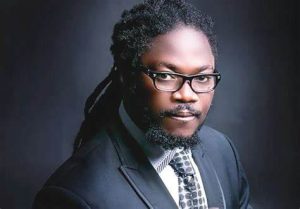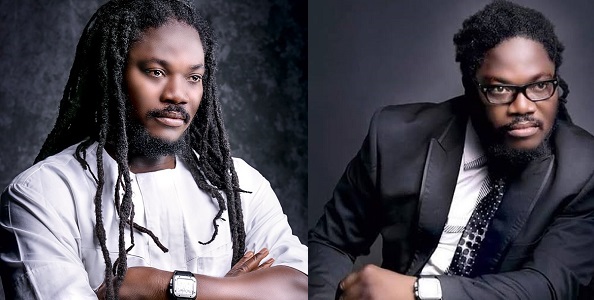Daddy Showkey slams Niger State Gov Umar Bago over his order to arrest people with dreadlocks, calling the move unfair and discriminatory.
The singer, famous for his reggae-influenced music and signature dreadlocks, took to social media on Thursday to express his anger and disappointment over the governor’s recent order. Bago had reportedly instructed security forces in Minna, the state capital, to arrest people wearing dreadlocks as part of efforts to address rising insecurity in the area.
Governor links hairstyles to insecurity
According to New Daily Prime, Governor Bago made the directive public during a security meeting held on Tuesday in Minna. He claimed that the step was necessary to curb increasing criminal activities in the city, blaming certain appearances and behaviours for contributing to the growing unrest.
Daddy Showkey responds with anger
But Daddy Showkey was having none of it.
In a passionate Instagram post, the music legend called out the governor for what he described as an ill-informed and discriminatory policy. He questioned the logic behind linking dreadlocks to crime and asked whether such hairstyles were truly to blame for the insecurity troubling the state.
“Mohammed Umar, na Dada be your problem?” he wrote in Pidgin English. “I dey come to Minna but now that you asked your security agents to cut off dreadlocks, so hold your state but make you cut your beer beer.”
Singer cancels trip in protest
The singer also revealed he was cancelling a planned visit to Niger State in protest. He challenged the governor to shave off his beard if he believed that changing appearances could solve the problem of insecurity.
The post quickly went viral, drawing widespread support from fans, civil rights advocates, and fellow entertainers. Many praised Daddy Showkey for speaking out and defending young people who might be unfairly targeted by the new policy.
Critics call policy dangerous
Critics of the governor’s directive say the move is not only discriminatory but also dangerous. They argue that it stereotypes people based on appearance and may lead to unlawful profiling, harassment, and even abuse by security personnel.
Legal experts question legality
Legal experts have also weighed in, warning that the order has no basis in Nigerian law. According to human rights lawyer Jide Olanrewaju, arresting people for wearing dreadlocks violates their fundamental rights to dignity and personal expression, as guaranteed by the Nigerian Constitution.
“You cannot criminalise someone simply because of how they look,” Olanrewaju said. “This is not how you tackle insecurity. The focus should be on intelligence, community engagement, and lawful enforcement not haircuts.”
Fear grows among young residents
Several youths in Minna, especially those in the entertainment and creative sectors, have expressed fear over the new directive. Some said they feel unsafe in public spaces, fearing being stopped or harassed because of their hairstyles.
“This is not fair,” said Musa Ibrahim, a 24-year-old fashion designer. “My dreadlocks are part of my identity. I don’t smoke, I don’t steal, I’m just trying to live my life. Now I’m scared to go outside.”
Cultural experts defend dreadlocks
Cultural experts have also criticised the governor’s remarks, reminding him that dreadlocks have deep roots in African history, spirituality, and identity. For many, including Rastafarians and traditionalists, the hairstyle holds religious or cultural meaning and should not be equated with crime.

“Dreadlocks are not a crime,” said cultural historian Ifeoma Obi. “They are part of our heritage. To attack them is to attack culture itself.”
History of appearance-based profiling in Nigeria
This is not the first time personal appearance has been used as a basis for profiling in Nigeria. In the past, young men with tattoos, piercings, or “unusual” hairstyles have been wrongly targeted by law enforcement officers under the suspicion of being internet fraudsters or cult members.
Activists say such actions create more tension between the police and the public, especially among young people who already face high unemployment and economic challenges.
A call for sensible leadership
Meanwhile, Daddy Showkey has urged Governor Bago to rethink his position. He called for policies that protect, not punish, the youth.
“Leadership is not about cutting hair,” the singer wrote. “It’s about building trust, creating jobs, and protecting lives. Let’s stop fighting the wrong battles.”
Public awaits official response
As of Friday morning, the Niger State government had not issued an official response to the backlash. But the pressure is mounting, with many Nigerians calling on the governor to withdraw the directive and focus on real solutions to the state’s security challenges.
For now, all eyes remain on Minna, as the debate over dreadlocks, identity, and governance continues to grow louder.
Read Also: Niger govt imposes curfew on Okada, Keke NAPEP operators in Minna



